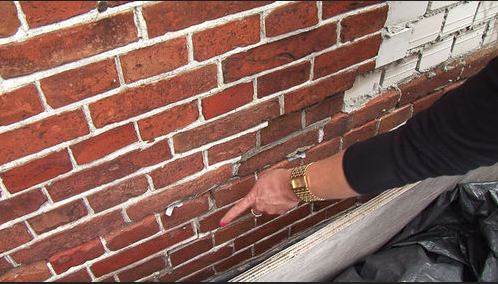Groningen is being ‘choked to death’ by government neglect


The province of Groningen is fed up with the government’s failure to sort out compensation for the earthquakes caused by gas extraction, says Johan Remkes, chairman of the national programme for Groningen, and a number of local mayors.
We sleep, but do not rest
We hope, but do not trust
I ask you now, what right have you to tell us
To build a future
When our present is close to collapse?
These are a few lines from ‘De meeste stormen konden we wel een tijdje aan’ (We were able to weather most of the storms for a while) by Myron Hamming, Groningen’s city poet. For 60 years, the proceeds from the gas fields under the province have trumped the interests of the people who were living on top of them.
When this became too obvious to ignore, the government proved incapable of rectifying the situation in a sympathetic way. If anything, it compounded the problems, as the outcome of the parliamentary inquiry on the Groningen gas programme will show when it is published on February 24.
That date will be this government’s last chance to right what is wrong and pay the bill that has been outstanding for so long. A good start would be to recognise that the ruinous aftermath of the gas extraction is not a problem confined to Groningen but one that concerns the whole country.
Earnings
The Netherlands has grown rich on Groningen gas. Of the €428 billion earned from the gas field, less than 1% flowed back to Groningen, making the fact that Groningen now tops the list of energy-poor provinces even harder to swallow.
This is another symptom of the insidious neglect that we have been facing: another year’s delay for the Eemsdelta programme to shore up homes, more delays for the building of a nitrogen plant and tentative plans to keep the Groningen gas field open for another year.
Our villages have been slowly choked to death as shops, schools, family doctors, police, buses and trains disappeared. Groningers began to report more health problems as the fear of earthquakes was taking its toll. There are far fewer resources for the children of Groningen than for youngsters who grow up elsewhere in the country.
We are perfectly willing to talk about our future. But first, shore up the homes of the Groningers, who simply want to live in a safe house in the place they love. They want to restore their historic buildings and reclaim their landscape.
To achieve this now, they have to do battle with one government department after another, and face commissions and inspectors. That distrust comes at a price: in 2011 from every euro spent on damage repair, 74 cents went costs of implementing the restitution programme. The price of of the lost trust of people of Groningen is incalculable.
Compensation
It is time to put compensation first and accountability later, and to tackle the most complicated cases first. Free people from the bureaucratic maze. Show commitment without provisos. Make sure the provincial authorities and the quake-affected municipalities can do what is needed. This will make the shoring up programme speedier, cheaper and fairer.
The government will also have to take measures which will make a difference in the short term. Compensate for energy poverty until all homes have been insulated and made sustainable, renovate neigbourhoods, make sure young people stand a chance on the labour market, help people become more active and provide proper health care nearby.
The Hague: it’s your move
The people of Groningen want to continue to contribute to Dutch prosperity. We have always done so, from grain and potatoes to cardboard, peat and gas. That prosperity has always been built on a foundation of revolutionary techniques, new raw materials and a good infrastructure.
Translated to the present day, that means investment in education, science, regional campuses and sea ports. Connect Groningen to the rest of the country and to Europe. Makes sure our dykes, waterways and soil become climate proof. And then Groningen can make a difference in the areas it has always excelled in: energy, agriculture, and research into healthy aging – for the benefit of Groningen and the Netherlands as a whole.
It will take a long term plan with proper powers to get things done, people and money , and the say of locals in the choices that are being made. The flood disaster in Zeeland led to the Delta works and the natural gas disaster can lead to another turning point in Dutch history. We can make the things Groningen will achieve in its wake as widely admired as our dykes, dams and flood defences. Groningen is willing and able, all The Hague has to do is to follow suit.
Thank you for donating to DutchNews.nl.
We could not provide the Dutch News service, and keep it free of charge, without the generous support of our readers. Your donations allow us to report on issues you tell us matter, and provide you with a summary of the most important Dutch news each day.
Make a donation